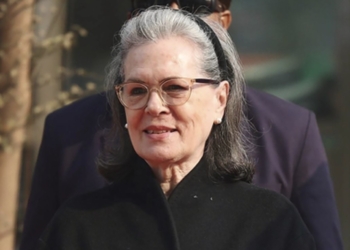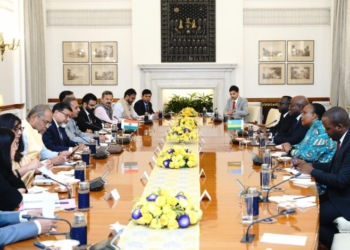New Delhi: Former Congress President Rahul Gandhi has filed a rejoinder affidavit before Supreme Court, saying that he was described as “arrogant” by the complainant BJP MLA Purnesh Modi because he has refused to apologise in the ‘Modi surname’ defamation case.
“The reply uses slanderous terms such as ‘arrogant’ to describe the petitioner (Rahul Gandhi) only because he has refused to apologise,” said the latest affidavit filed in response to the reply filed by the respondent before the Supreme Court.
It said that Gandhi has always maintained that he is not guilty of offence and “if he had to apologise and compound the offence, he would have done it much earlier”.
In legal proceedings, a rejoinder affidavit is the response by the petitioner to the reply or counter affidavit filed by the respondent. The counter-affidavit filed recently by the original complainant in the matter said that Gandhi displayed “arrogance” and his petition before the Supreme Court “deserves to be dismissed with exemplary costs”. It said that Gandhi had “disreputable antecedents” and referred to his criminal prosecution in the National Herald case, where he is on bail and the other case relating to defamation of Veer Savarkar.
The rejoinder affidavit filed by Gandhi said: “The pending cases cannot be used against the accused as criminal antecedents unless he is convicted of an offence.”
As per the counter-affidavit filed by BJP MLA Purnesh Modi before the top court opposing Gandhi’s plea for stay of conviction, “at the time of sentencing before the trial court, the petitioner (Rahul Gandhi) far from being repentant or contrite, displayed arrogance. He said he did not seek any mercy from the court and would not apologise for any harm to reputation of the persons he had defamed”.
It said that Gandhi made the defamatory statement out of “personal hatred” towards an elected Prime Minister of the country, and “deserves no sympathy” on the question of the sentence imposed. On July 21, the Supreme Court agreed to examine the plea filed by Rahul Gandhi against the Gujarat High Court’s verdict denying to put a stay on his conviction in the ‘Modi surname’ defamation case.
A bench of Justices BR Gavai and Prashant Kumar Mishra had issued a notice on the question as to whether the conviction should be suspended or not. It was, however, not inclined to pass any interim relief on Gandhi’s plea praying for suspension of his sentence.
The high court’s refusal to stay his conviction and two-year jail term in a criminal defamation case, has cost the Congress leader his Lok Sabha membership. The apex court had sought responses of the Gujarat government and others on Rahul Gandhi’s plea and posted the matter for hearing on August 4.
On July 15, the Congress leader had approached the Supreme Court challenging the Gujarat High Court’s order where a bench of Justice Hemant Prachchhak had observed that granting a stay on his conviction would be an exception, and not a rule. Gandhi was disqualified as a Member of Parliament in March, after a Surat court convicted him and sentenced him to two years in prison for his “How come all thieves have Modi as the common surname” remark made during an election rally in Karnataka in April 2019.
Rahul Gandhi’s 2019 remark was interpreted as an attempt to draw an implicit connection between Prime Minister Narendra Modi and fugitive businessmen Nirav Modi and Lalit Modi. In March, the sessions court in Surat had dismissed Rahul Gandhi’s plea seeking suspension of his conviction by the magistrate court, stating that his disqualification will not result in an irreversible loss to him. The Congress leader was disqualified under a rule that bars convicted MPs from holding Lok Sabha membership.
(IANS)
















